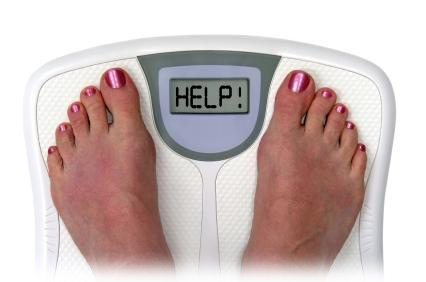:dropcap_open:D:dropcap_close:uring the past twenty years of practice, I’ve tried to get patients to eat right. I’ve met with a lot of resistance! My experience has been that patients in severe pain healed faster if they were willing to remove the foods that caused inflammation from their diets. Unfortunately, getting patients to comply with a change of diet for pain relief was a challenge.
:quoteright_open:I have found that the majority of overweight patients I’ve treated have Candida complicating their weight problems.:quoteright_close:
I have found an easier way to get patients to change their diets. I started offering weight loss programs. Patients expect they are going to have to change their diet on a weight loss program and all of the sudden become compliant while achieving health along the way!
When I first started focusing on weight loss for patients, I didn’t pay too much attention to Candida. However, after cases of patients not responding as I thought they should, I looked closer at the role Candida plays in weight gain. Once I realized the significant role Candida plays, I started using it as a weight loss tool; and patient success stories have changed dramatically. I have found that the majority of overweight patients I’ve treated have Candida complicating their weight problems.
The following are some questions you should be asking your patients, to determine whether or not Candida is a contributing factor to their weight problems.
 1. Do you feel tired most of the time?
1. Do you feel tired most of the time?
2. Does the fatigue alter your lifestyle?
3. Do you suffer from intestinal gas?
4. Do you suffer with abdominal bloating or discomfort?
5. Do you crave vinegar, sugar, bread, beer or other alcoholic beverages?
6. Are you bothered by bowel disorders?
7. Are you bothered by constipation? Diarrhea or alternating constipation and diarrhea?
8. Do you suffer from anxiety, depression, panic attacks or mood swings?
9. Are you often irritable, easily angered, anxious or nervous?
10. Do you have trouble thinking clearly or suffer memory loss, particularly short term memory loss?
11. Are you ever faint, dizzy or light headed?
12. Do you have muscle aches or take more than twenty-four hours to recover from normal activities?
13. Without changes in your diet have you gained weight that you aren’t able to shed no matter what you tried?
14. Does itching and burning of the vagina, rectum, and prostate bother you or have you experienced a loss of sexual desire?
15. Do you have a white or yellow fuzzy coating on your tongue?
16. Have you had athlete’s foot, ring worm, jock itch or other chronic fungal infections of the skin or nails?
17. Does exposure to perfume, insecticide, new carpeting or other chemical smells bother you?
18. Have you, at any time in your life, taken broad spectrum antibiotics? Such as Tetracycline or Penicillin?
19. Are you now or have you ever used birth control pills or shots?
20. Are you on synthetic hormones?
21. Have you ever taken or had a steroid drug or had an injection for pain? These drugs, used for allergies, asthma, respiratory problems and injuries include cortisone and prednisone.
After your patients have answered all of these questions, help them rate the likelihood that they have Candida, based on the following scale, according to the patient’s number of yes answers.
Probability of Candida
0 to 4 5 to 6 7 to 11 12 or More
![]()
Low Medium High Very High
What is Candida?
Candida is an over-infestation of yeast in the body, invading the brain and every tissue of the body. Candida can be devastating because it lives and grows on what you eat. It makes the body crave what it “needs” and rampages until you give into cravings. For this reason, Candida is difficult to get rid of, but it can be done, if proper steps are taken!
Candida Albicans is one of the many different types of yeast. Yeast cells are able to grow on the surface of all living things and occur virtually everywhere. The fact is, we breathe, eat, and drink them daily because they are part of our everyday lives. Everyone has yeast growing on their skin, other body surfaces and in their intestines. Normally the body’s defense system keeps the total number of yeast cells under control, so Candida colonies in the intestinal tract are rarely a problem.
Due to the overuse of antibiotics, the addition of steroids and hormones in animal products, and other chemicals your patients are ingesting, Candida may end up being an issue.
In the presence of Candida, sugar has difficulty passing through cells; therefore insulin cannot do its job properly, causing low blood sugar and weight gain. When Candida is under control, patients will more easily be able to achieve and maintain their proper weight.
Since Candida and other yeasts are all around us, we can never be completely rid of them. We can, however, bring them under control without the use of prescription drugs. To achieve the greatest degree of success, an effective balance of dietary changes, nutritional support, and the increase of friendly bacteria are necessary.
When patients completely change their diets, the body will rid itself of toxins and unhealthy Candida. Addressing your patients’ Candida problems will help them to become healthier, while enabling them to more easily lose the weight they desire.
Dr. Todd Singleton graduated from Los Angeles College of Chiropractic in 1990 and went on to own some of the largest MD/DC/PT clinics in the country. In 2006, he switched from an all-insurance practice to an all-cash practice, by adding a weight loss business to his practice. He currently runs a very successful weight loss practice in Salt Lake. He has taught his successful weight loss model to around 300 chiropractors across the country. For additional information, go to www.ChiropracticWeightLoss.com.
